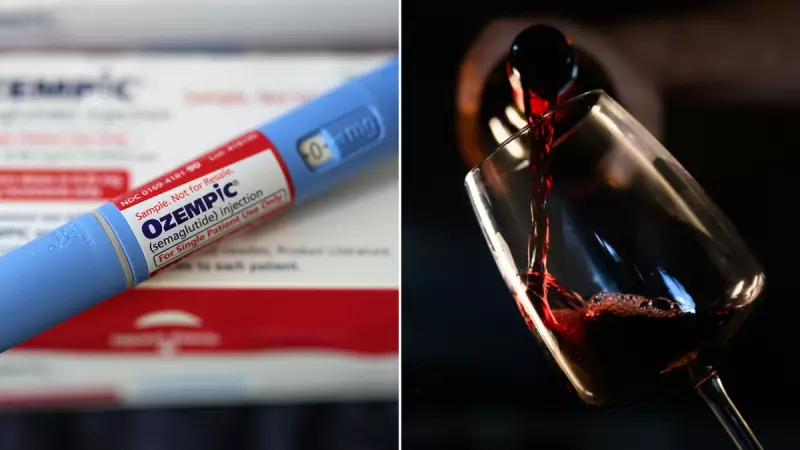
An international clinical trial is exploring whether blockbuster weight loss medications could revolutionise treatment for alcohol addiction and potentially halt the progression of alcohol-related liver disease - one of Australia's fastest growing health crises.
The study, sponsored by pharmaceutical giant Novo Nordisk, is running across Europe, the United States and seven Australian locations, involving approximately 240 patients worldwide.
Multi-Drug Approach Targets Cravings and Liver Damage
The research is examining combinations of three different medications: semaglutide (the primary ingredient in Ozempic), cagrilintide, and a FGF21 analogue. These drugs work by targeting appetite control, alcohol cravings, and inflammation pathways in liver cells.
Addiction and liver specialist Professor Paul Haber, who leads the Australian arm of the trial, explained that the treatment aims to address both alcohol dependence and the severe liver damage it causes.
"These are three protein drugs in various combinations that interact with the appetite, the craving for alcohol, and actually also interact with the cellular damage pathways in the liver," Professor Haber told 7NEWS in an exclusive interview.
"We believe that it has a multiple effect, both on the appetite for alcohol, the appetite for food, and the effect of those things on the inflammation within the liver."
Early Results Show Promise
Although final results won't be available until all international data is combined, early indicators are encouraging according to researchers.
"The trial has shown that the patients lose weight and at least in some of our patients, they are showing signs of reducing their alcohol use," Professor Haber confirmed.
The primary goal of the study is to determine whether these medications can improve liver inflammation and fibrosis - the precursor to cirrhosis, cancer and liver failure.
Professor Haber describes the potential impact of these treatments as "transformative" for medical practice.
"Throughout my career we had no specific treatment for patients with both alcohol problems, overweight or liver damage ... so it is a transformative time when we're really starting to see treatments that make a material difference to people's lives."
He remains "incredibly optimistic" about liver outcomes due to the drugs' biological effects and observed reductions in both alcohol consumption and weight.
Not a Solution for Everyone
Professor Haber emphasised that these medications aren't suitable for everyone struggling with alcohol issues.
"You wouldn't recommend taking these medications for someone who is, you know, two kilos overweight or something," he stated.
The treatment focus remains on individuals at high medical risk, particularly those with alcohol-related liver disease - a condition that's becoming more prevalent as Australia's population ages.
The personal impact of alcohol dependency is illustrated by the experience of Nigel Harpley, 48, who struggled with alcohol dependence for years, with his drinking escalating significantly in his late 30s.
"Like a couple of beers and a bottle of wine, maybe four or five times a week," Harpley described his consumption patterns.
After eventually seeking medical help, he underwent inpatient treatment, therapy and medication. When asked if he would have tried Ozempic-style treatment if available earlier, Harpley was unequivocal: "Absolutely."
Urgent Need for New Treatments
April Long, CEO of SMART Recovery Australia, stressed the urgent need for new treatment options for alcohol dependency in Australia.
"One of the biggest challenges in our country right now is alcohol dependency ... it often takes people over 12 years to first seek support," she revealed.
Long also highlighted the broader social impact, noting that "for every individual struggling, it's estimated that six people around them are being impacted as well."
While supporting the trial, Long raised concerns about the cost of medications like Ozempic potentially creating accessibility barriers.
"People who are financially in a hard position, it's really important that any of these pharmaceutical options, there's equity in how it's distributed," she emphasised.
The trial includes seven treatment groups - some receiving combinations of the three medications, others receiving a placebo - allowing researchers to identify which approach delivers the best results.
Just the Beginning of New Treatment Frontiers
Researchers indicate this trial represents only the beginning of exploring new applications for GLP-1 medications.
New studies are already being designed to investigate whether these drugs could also reduce cigarette cravings and smoking rates.
"There is a growing area of research applying these drugs ... to a range of addictions," Professor Haber confirmed.
He predicts a wave of new GLP-1-style medications will become available within the coming decade.
"I'm pretty well sure that within 10 years there'll be a range of these new drugs available."
If successful, experts say this approach could redefine addiction treatment and mark a significant new frontier for medications originally developed for weight management.





